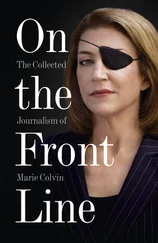They have also been overwhelmed by their welcome. Neighbours have taken them shopping and have invited them to dinner. They have received a government grant for monthly rent, food and Hebrew lessons. Their first days are spent in a daze at the amount of food in the shops and the fact they are in a Jewish state.
Above all, they have escaped anti-Semitism. ‘I have lived with anti-Semitism all my life. I am accustomed to it. But my son is very intelligent and he should have a chance,’ said Rafalovsky.
Nobody underestimates how tough it is for these immigrants to start afresh. Few speak Hebrew. They arrive with only their luggage and $140, the maximum they are allowed to take out of the Soviet Union.
In turn they have triggered euphoria among the normally cynical Israelis, who have agonised about criticism over their treatment of Palestinians. ‘This has made us feel special again. Israelis suddenly feel desired. It’s the same feeling we had after the 1967 war,’ said Gad Benari, a spokesman for the Jewish Agency, which handles the immigration.
But the immigrants do face a problem over their Jewishness. Under Israeli law, all Jews have a right to return to their homeland. This influx, however, is very different from the rush of Soviet ‘refuseniks’ in the 1970s.
They were committed Zionists who had waited in virtual internal exile for exit visas, spending the years studying Hebrew. Few of the new arrivals are religious. Many have never been to a synagogue and are the children of mixed marriages, which will raise problems with the orthodox Jews.
But for now, the benefits outweigh the problems. Most Soviet Jews feel satisfied because they have enough money to live, an apartment and work, however menial.
For most it is enough to escape the Soviet Union. There, Jews are being blamed for the failures of the economy and the uncertainty of the political situation. ‘What I can’t believe is that any of my Jewish friends stayed behind,’ says Victor Savitsky, an engineer who arrived with his wife and their tiny daughter.
Others talk of being barred from universities by anti-Semitism and of the virulently anti-Semitic organisation, Pamyat, which has been holding rallies in cities.
The desire to leave the Soviet Union is now so great that an estimated 12,000 Soviet Jews cannot get seats on planes. The Israelis are trying to persuade the Moscow authorities to allow direct flights to Israel, but for now most immigrants come through Bucharest or Budapest. The Savitskys waited four months before they could buy a plane ticket.
Desperation has bred daring. One couple, Mark and Louisa Puzis, drove their Lada from the Ukraine with their two-month-old baby in the back, trading vodka in exchange for petrol.
Israel is just coming to terms with the magnitude of the problem. The system of absorption is showing signs of falling apart. Reception centres are full and the government budget is overspent.
Critics say the government has been slow to deal with an emerging crisis. Resources in Israel are scarce. There is high unemployment and 20% inflation. ‘We should be treating this like a war situation,’ said Michael Kleiner, head of the Absorption Committee at the Knesset, Israel’s parliament.
He is trying to convince the government to cut red tape and provide money. He has proposed that Israel should stop all development for two years and put that money towards absorbing the new immigrants.
‘Responsible people won’t even make estimates on how many will arrive or how much money we will need,’ said Kleiner. ‘Teddy Kollech [mayor of Jerusalem] has been waiting for 20 years to finish a soccer stadium for Jerusalem. He can certainly wait another two years.’

Love sours for Romeo and Juliet of the West Bank: Avi Marek and Abir Mattar
JERUSALEM
1 April 1990
The script would probably have been rejected by even the most schmaltzy Hollywood producer. Abir, a 19-year-old Palestinian beauty who has gone home to her West Bank village to stay with her mother, meets Avi, a dashingly handsome Israeli officer who spots her when he careers by in his jeep. They go together like humous and pitta bread and talk of marriage.
If the film were ever made, love would no doubt conquer the differences of race, politics and religion. But in the harsh world of the occupied territories, life is more complicated.
Last week, the star-crossed lovers were both outcasts from their communities. Avi was suspended pending the outcome of a military investigation into his breach of the regulations forbidding fraternisation with Palestinians. Abir was hiding in a Palestinian hotel.
The story of Avi Marek and Abir Mattar is a rare glimpse of the human dramas hidden beneath the conventional rocks and riots image of the intifada. Marek is a 30-year-old Israeli captain whose infantry unit is stationed in Beit Jalla, a mostly Christian village that has virtually closed down during the three years of the Palestinian uprising.
Home life held few joys. He had married a much older woman, Rivka, less than a year ago and lived in her flat in a sterile apartment block in the settlement of Gilo outside Jerusalem. But it was better than his own neighbourhood, Shmuel Hanavi, a poor suburb of Jerusalem populated mostly by Sephardic Jews, immigrants from Arab countries.
Marek, who speaks Arabic, by all accounts fell at first sight for Mattar, who was educated in a convent school in Bethlehem and used to babysit for tourist families.
Mattar says it was mutual. In her hotel room last week, she looked at herself in the mirror and smiled when she said: ‘Yes, I love him. We met for the first time eight months ago; we have been happy ever since.’
Sitting looking out on a view of a west Jerusalem street, the Jewish side of the divided city, she reflects on how circumscribed her life has become. She cooks meals on a gas burner in the room and feels out of place among package-trip tourists who fill the lobby. She is also three months pregnant with Marek’s baby.
But Mattar says her life has always been difficult. Her father drank and gambled until her mother kicked him out, and she married at 16 to a man who already had a wife and five children. When he was imprisoned she returned home to Beit Jalla with a child.
Marek began his courtship by calling to her from his army jeep as she walked to a friend’s house. Soon her mother, Nina, noticed she was out all night every night.
‘When I asked,’ she said, ‘Abir replied that it was none of my business. Then I noticed an army jeep would stop outside and beep. The jeep seemed to be around all the time.’
Nina worried that her daughter’s relationship would bring unwanted attention. The Mattar family was already ostracised. Nina’s lifestyle is hardly suited to a traditional Arab village. Last week she dressed to greet visitors in leopard-print stretch pants and a black lace top.
Nina went out to work when her husband left, something that is not done in traditional Arab culture, and had a series of boyfriends before remarrying. ‘I’m not a virgin,’ she said, chain-smoking as she looked out at the village of sun-splashed stone homes. ‘I’ve always had a boyfriend. That doesn’t make me a whore like everyone in this town says. Look at my apartment, if I was a whore I would have made some money. I’ve only one bed and not even a proper bathroom.’
She also collaborated with the Israeli occupying forces. Left with seven children and spurned by her neighbours, she says she felt few loyalties. The police gave her 200 shekels (about £70) every time she passed them information. She stopped when the intifada began.
Читать дальше













